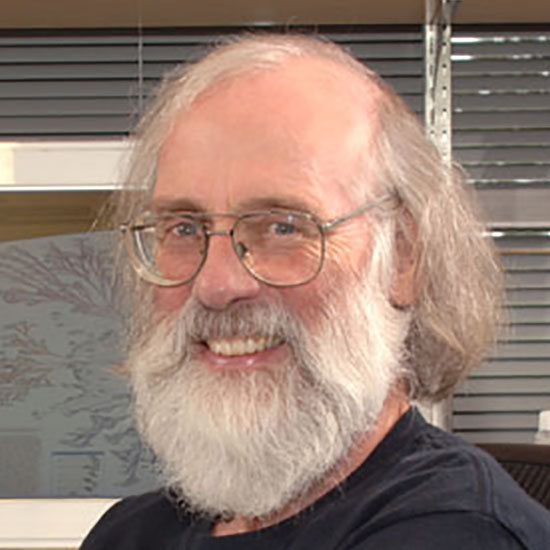Tony Hunter has made key contributions to the biochemistry of protein synthesis, the molecular biology of DNA tumour viruses and the biochemistry of protein kinases involved in tumour cell transformation. His early work on regulation of haemoglobin synthesis led to the discovery of the special role of methionine in initiation of haemoglobin synthesis.
He made important contributions to the study of replication and gene expression of polyomavirus and showed that the polyoma middle T antigen was associated with an activity phosphorylating tyrosine. He was the first to demonstrate that the kinase activity of the Rous sarcoma virus transforming protein phosphorylates tyrosine in proteins. He found that growth factors such as epidermal growth factor and platelet-derived growth factor stimulate tyrosine phosphorylation in cells.
For the past 35 years, Tony has studied protein kinases and phosphatases, and in particular the role of protein phosphorylation in cell proliferation and the cell cycle, and how aberrant protein phosphorylation can cause cancer. He also works on other types of posttranslational modifications (PTMs), including ubiquitylation and sumoylation, and crosstalk between PTMs.
Professional position
- Director, NCI Cancer Center, Salk Institute for Biological Studies
- Renato Dulbecco Chair in Cancer Research, Salk Institute for Biological Studies
Subject groups
-
Molecules of Life
Cell biology (incl molecular cell biology)
Awards
-
Croonian Medal and Lecture
On 'The phosphorylation of proteins on tyrosine: its role in cell growth and disease'.
-
Royal Medal
For his discovery of tyrosine phosphorylation by src protein kinase that revolutionised our understanding of cellular signal transduction.
-
Wolf Prize
In the field of medicine for the discovery of protein kinases that phosphorylate tyrosine residues in proteins, critical for the regulation of a wide variety of cellular events, including malignant transformation.

